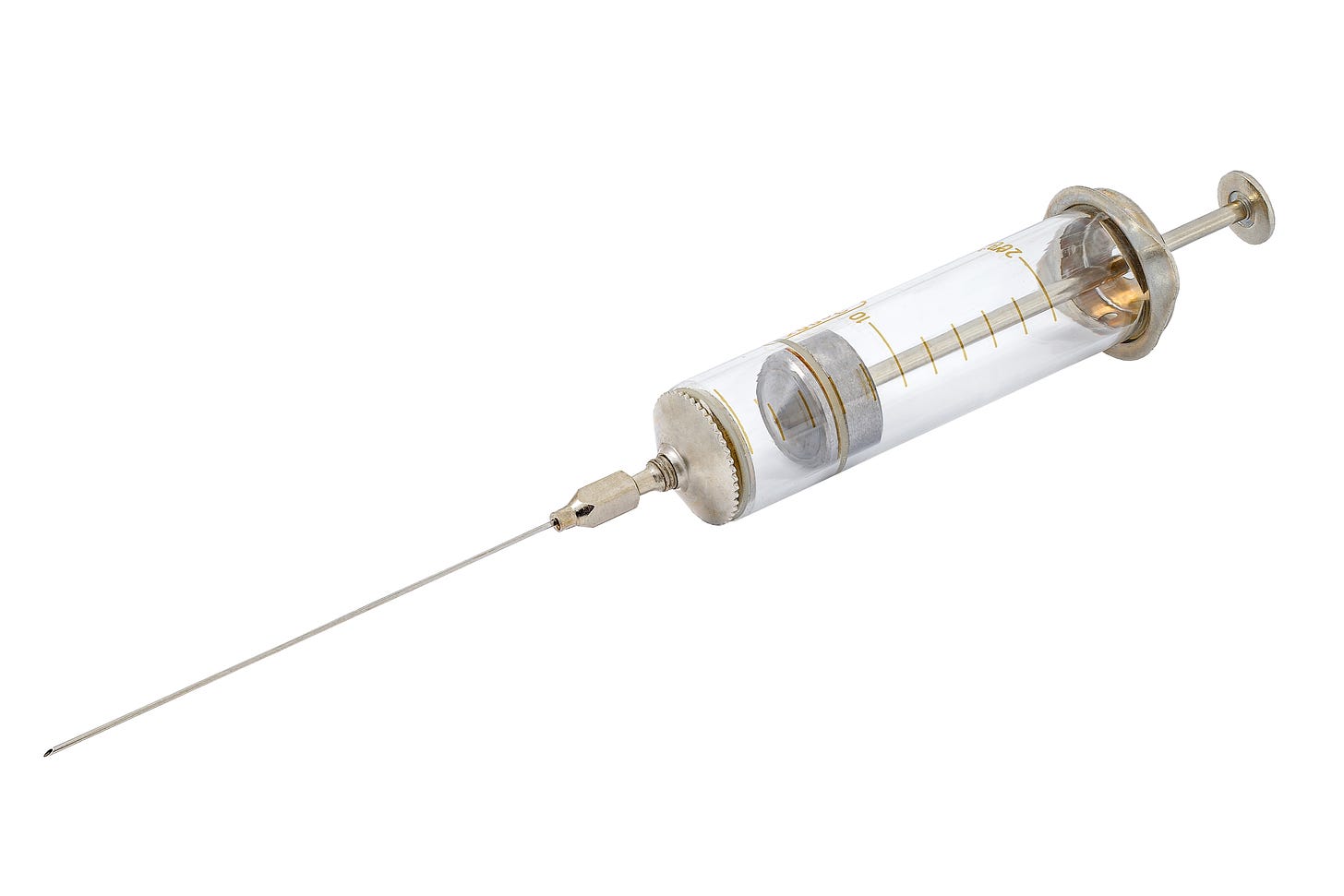Outgoing CDC Director Rochelle Walensky Recommends Novel Respiratory Syncytial Virus Vaccines for Adults Aged 60 and Older
Do you know a single person who has been given an RSV diagnosis? I don't. Per CDC's own data, less than 0.28% of people over 65 will be hospitalized with RSV annually. Is that "high risk"?
Plus (surprise): Insufficient safety data.
The US Centers for Disease Control said Thursday that outgoing Director Rochelle Walensky has endorsed ACIP, the advisory committee on immunization practices’ recommendation that adults aged 60 and older be offered a single dose of one of the two novel RSV vaccines by healthcare providers.
Earlier this year (2/2023), ACIP had reviewed the limitations of what was known about the GSK RSV vaccine, which included: they did not consider risk groups within people over 60, nor did they model dynamic transmission. They reported no impact of the vaccine on transmission and did not cite in detail "indirect effects" (new language for "adverse events". The committee was uncertain about vaccine costs, and actual RSV incidence, and the data indicate no long-term efficacy for re-infection.
See February 2023 ACIP Meeting - RSV Vaccines - Adult - YouTube
See October, 2022 ACIP Meeting - Respiratory Syncytial Virus Vaccines - YouTube
In the case of the Pfizer RSV vaccine, the committee was unable to know the rates of hospitalization for RSV respiratory illness, nor the rates of severe RSV requiring oxygen support. In the randomized clinical trial, no deaths were observed in either harm, so the benefit of protection against deaths could not be evaluated.
Further, inflammatory neuropathy could not be evaluated due to insufficient events (0). This means the trial was too small. In the end, the committee was told that available research could only ascertain that the desirable consequences of vaccination probably outweigh the undesired consequences in most settings.
There were three cases of Guillan Barre Syndrome (GBS) in the GSK study, which was compared against “background” case rates - which is problematic because the “background” includes people accepting influenza and other vaccines that may be associated with GBS.
Little Data on Co-Administration, No Long-Term Safety Data Available, Arm-Waving on “High Risk” in Older People
Buried in the ACIP discussions months ago was a signal of concern over decreased efficacy of RSV vaccines co-administered with influenza vaccines. This was not discussed in any of the press releases nor mentioned by CDC, providing an example of translational failure.
Of course, no long-term safety of any type is available, and none will be forthcoming until over a year from now when post-market reports of adverse events can be studied.
The vaccines, which are manufactured by Pfizer and GSK were given approval by the US Food and Drug Administration in May. It is expected they will be distributed to healthcare providers this fall, according to the CDC.
The CDC claims that certain adults are at the “highest” risk of developing severe cases of RSV, including the elderly, and yet less than 0.28% of people over 65 will be hospitalized with RSV annually.
The CDC also claims that those with chronic heart or lung conditions, weakened immune systems, or living in nursing homes or other long-term care facilities are at increased risk of severe cases of RSV infection.
The mainstream media distorts this into “high risk”, so beware of reports of “high risk” of RSV in any population.
Population-wide, the risk of death from RSV infection is 0.004%.
On June 21, the CDC's Advisory Committee on Immunization Practices issued a recommendation that the vaccines be offered to older people on a limited basis - one or two doses based on consultation with a healthcare provider. This may be a sign that administration of the second dose may be predicated on whether any adverse events were observed in the first.
In my opinion, the following studies could have and still could be done to assess safety:
RSV vaccine vs. inert placebo, long-term health, and safety outcomes
RSV vaccine alone vs. RSV vaccine + Influenza vaccines, long-term health and safety outcomes
RSV vaccine alone vs. Brownstein Protocol alone vs. RSV vaccine + Brownstein protocol, long-term health and safety outcomes.
RSV Vaccines in Pregnant Women Flopped on Efficacy and Safety
In April, Pfizer’s RSV for pregnant women failed to provide any detectable protection against RSV for their newborn infants, but there was an increased risk of pre-term birth. See this physicians’ review of the matter:
and Dr. Nass’s coverage:
The issue split the VRBAC committee’s vote, it was hardly a strong endorsement.






Thank you for your informative posts! I will be sharing this with friends & family who are >60 yo in hopes that they will read it and do their research before they roll up their sleeves again for yet another 💉.
My father who was healthy before his VA doctor talked him into taking the Covid injection & then developed major breathing problems & diagnosed with COPD.
With this haze that’s blanketing our country for a month that our government is saying it’s due to wildfires in Canada is causing many people & pets to have breathing problems!
Expert firemen are warning that this “smoke” smells like plastic burning & not due to wildfires!
Our area in WV has been saturated with this smoke for several days & it smells like plastic/rubber is burning. My dog doesn’t want to go outside & it’s given me headaches, watery eyes & sinus problems.
I don’t believe this is from Canadian wildfires, where’s all the media coverage & pictures?
Why aren’t governments doing anything to stop this so-called wildfire???
They care so much about the animals & pollution but do nothing to stop this???
Is America under attack from the Globalist Elite???
Something very fishy is happening?!